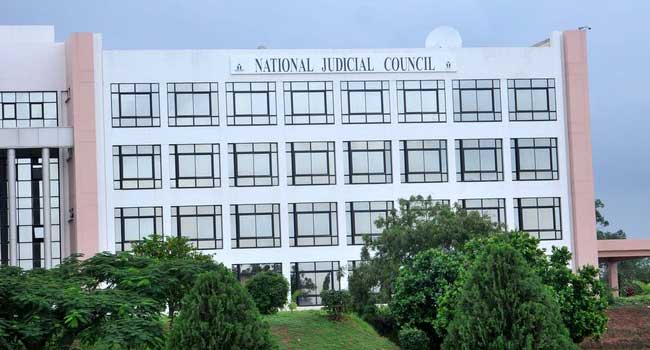The Chairman, Senate Committee on Rules and Business, Senator Sadiq Umar, has said overriding President Buhari on the Electoral Act Bill can plunge the country into constitutional crisis.
Umar, who represents Kwara North in the Red Chamber, said this while responding to questions from reporters at the NUJ secretariat, Ilorin.
The programme was organised by the Correspondents Chapel.
According to him, the senators did not do a U-turn on the issue but were forced by the decision of the House of Representatives to stand down the debate on the President’s letter.
“What happened was that after the National Assembly passed the Electoral Act, the president wrote back to us, giving reasons why he could not assent.
“We believe some of the reasons; some we didn’t, others we felt confused over. For the senate, we were ready to override and there was a debate where we struggled on this.
“But while that was going on, the House of Representatives unfortunately did not address the president’s letter. They felt it was a hot matter that needed more consultations and engagement and kept it in abeyance to pass the budget with a plan to return to it after coming back from the holiday when they would have engaged with their constituents.
“For us, we were preparing to do what we wanted to do but given our rules and constitutional provision, even if we eventually overruled the president, it would have been null and void because there has to be concurrence between the two chambers.
“So the senators also bought into the decision of the green chamber to continue consultation with our people so that when we resume, we will do want the people want us to do. Our action was a strategic one to avoid constitutional crisis,” he submitted.
Sadiq, who denied that the senate was a rubber stamp of the executive, justified the approvals of the loan requests of the president.
“The popular saying is that Nigeria is very rich, but that saying is erroneous when you juxtapose it with our revenue and population.”
“The amount of money we need to revamp the education sector alone, the whole money available to government cannot do it and same thing goes for all other sectors like health and infrastructure, among others.
“The bitter truth is that the country cannot do infrastructure without loans now except salaries because of revenue constraint,” he added.





